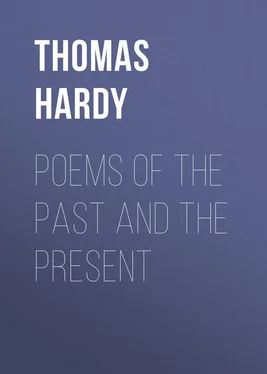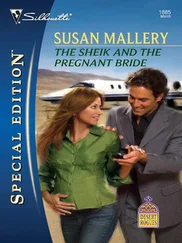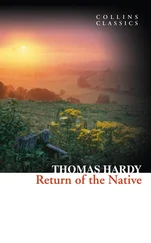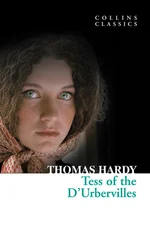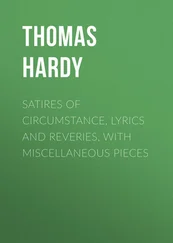Thomas Hardy - Poems of the Past and the Present
Здесь есть возможность читать онлайн «Thomas Hardy - Poems of the Past and the Present» — ознакомительный отрывок электронной книги совершенно бесплатно, а после прочтения отрывка купить полную версию. В некоторых случаях можно слушать аудио, скачать через торрент в формате fb2 и присутствует краткое содержание. Жанр: foreign_antique, foreign_prose, на английском языке. Описание произведения, (предисловие) а так же отзывы посетителей доступны на портале библиотеки ЛибКат.
- Название:Poems of the Past and the Present
- Автор:
- Жанр:
- Год:неизвестен
- ISBN:нет данных
- Рейтинг книги:4 / 5. Голосов: 1
-
Избранное:Добавить в избранное
- Отзывы:
-
Ваша оценка:
- 80
- 1
- 2
- 3
- 4
- 5
Poems of the Past and the Present: краткое содержание, описание и аннотация
Предлагаем к чтению аннотацию, описание, краткое содержание или предисловие (зависит от того, что написал сам автор книги «Poems of the Past and the Present»). Если вы не нашли необходимую информацию о книге — напишите в комментариях, мы постараемся отыскать её.
Poems of the Past and the Present — читать онлайн ознакомительный отрывок
Ниже представлен текст книги, разбитый по страницам. Система сохранения места последней прочитанной страницы, позволяет с удобством читать онлайн бесплатно книгу «Poems of the Past and the Present», без необходимости каждый раз заново искать на чём Вы остановились. Поставьте закладку, и сможете в любой момент перейти на страницу, на которой закончили чтение.
Интервал:
Закладка:
THE SICK GOD
In days when men had joy of war,
A God of Battles sped each mortal jar;
The peoples pledged him heart and hand,
From Israel’s land to isles afar.
His crimson form, with clang and chime,
Flashed on each murk and murderous meeting-time,
And kings invoked, for rape and raid,
His fearsome aid in rune and rhyme.
On bruise and blood-hole, scar and seam,
On blade and bolt, he flung his fulgid beam:
His haloes rayed the very gore,
And corpses wore his glory-gleam.
Often an early King or Queen,
And storied hero onward, knew his sheen;
’Twas glimpsed by Wolfe, by Ney anon,
And Nelson on his blue demesne.
But new light spread. That god’s gold nimb
And blazon have waned dimmer and more dim;
Even his flushed form begins to fade,
Till but a shade is left of him.
That modern meditation broke
His spell, that penmen’s pleadings dealt a stroke,
Say some; and some that crimes too dire
Did much to mire his crimson cloak.
Yea, seeds of crescive sympathy
Were sown by those more excellent than he,
Long known, though long contemned till then —
The gods of men in amity.
Souls have grown seers, and thought out-brings
The mournful many-sidedness of things
With foes as friends, enfeebling ires
And fury-fires by gaingivings!
He scarce impassions champions now;
They do and dare, but tensely – pale of brow;
And would they fain uplift the arm
Of that faint form they know not how.
Yet wars arise, though zest grows cold;
Wherefore, at whiles, as ’twere in ancient mould
He looms, bepatched with paint and lath;
But never hath he seemed the old!
Let men rejoice, let men deplore.
The lurid Deity of heretofore
Succumbs to one of saner nod;
The Battle-god is god no more.
POEMS OF PILGRIMAGE
GENOA AND THE MEDITERRANEAN
(March, 1887)
O epic-famed, god-haunted Central Sea,
Heave careless of the deep wrong done to thee
When from Torino’s track I saw thy face first flash on me.
And multimarbled Genova the Proud,
Gleam all unconscious how, wide-lipped, up-browed,
I first beheld thee clad – not as the Beauty but the Dowd.
Out from a deep-delved way my vision lit
On housebacks pink, green, ochreous – where a slit
Shoreward ’twixt row and row revealed the classic blue through it.
And thereacross waved fishwives’ high-hung smocks,
Chrome kerchiefs, scarlet hose, darned underfrocks;
Since when too oft my dreams of thee, O Queen, that frippery mocks:
Whereat I grieve, Superba!.. Afterhours
Within Palazzo Doria’s orange bowers
Went far to mend these marrings of thy soul-subliming powers.
But, Queen, such squalid undress none should see,
Those dream-endangering eyewounds no more be
Where lovers first behold thy form in pilgrimage to thee.
SHELLEY’S SKYLARK
( The neighbourhood of Leghorn : March , 1887)
Somewhere afield here something lies
In Earth’s oblivious eyeless trust
That moved a poet to prophecies —
A pinch of unseen, unguarded dust
The dust of the lark that Shelley heard,
And made immortal through times to be; —
Though it only lived like another bird,
And knew not its immortality.
Lived its meek life; then, one day, fell —
A little ball of feather and bone;
And how it perished, when piped farewell,
And where it wastes, are alike unknown.
Maybe it rests in the loam I view,
Maybe it throbs in a myrtle’s green,
Maybe it sleeps in the coming hue
Of a grape on the slopes of yon inland scene.
Go find it, faeries, go and find
That tiny pinch of priceless dust,
And bring a casket silver-lined,
And framed of gold that gems encrust;
And we will lay it safe therein,
And consecrate it to endless time;
For it inspired a bard to win
Ecstatic heights in thought and rhyme.
IN THE OLD THEATRE, FIESOLE
( April , 1887)
I traced the Circus whose gray stones incline
Where Rome and dim Etruria interjoin,
Till came a child who showed an ancient coin
That bore the image of a Constantine.
She lightly passed; nor did she once opine
How, better than all books, she had raised for me
In swift perspective Europe’s history
Through the vast years of Cæsar’s sceptred line.
For in my distant plot of English loam
’Twas but to delve, and straightway there to find
Coins of like impress. As with one half blind
Whom common simples cure, her act flashed home
In that mute moment to my opened mind
The power, the pride, the reach of perished Rome.
ROME: ON THE PALATINE
( April , 1887)
We walked where Victor Jove was shrined awhile,
And passed to Livia’s rich red mural show,
Whence, thridding cave and Criptoportico,
We gained Caligula’s dissolving pile.
And each ranked ruin tended to beguile
The outer sense, and shape itself as though
It wore its marble hues, its pristine glow
Of scenic frieze and pompous peristyle.
When lo, swift hands, on strings nigh over-head,
Began to melodize a waltz by Strauss:
It stirred me as I stood, in Cæsar’s house,
Raised the old routs Imperial lyres had led,
And blended pulsing life with lives long done,
Till Time seemed fiction, Past and Present one.
ROME
BUILDING A NEW STREET IN THE ANCIENT QUARTER
These numbered cliffs and gnarls of masonry
Outskeleton Time’s central city, Rome;
Whereof each arch, entablature, and dome
Lies bare in all its gaunt anatomy.
And cracking frieze and rotten metope
Express, as though they were an open tome
Top-lined with caustic monitory gnome;
“Dunces, Learn here to spell Humanity!”
And yet within these ruins’ very shade
The singing workmen shape and set and join
Their frail new mansion’s stuccoed cove and quoin
With no apparent sense that years abrade,
Though each rent wall their feeble works invade
Once shamed all such in power of pier and groin.
ROME
THE VATICAN – SALA DELLE MUSE
I sat in the Muses’ Hall at the mid of the day,
And it seemed to grow still, and the people to pass away,
And the chiselled shapes to combine in a haze of sun,
Till beside a Carrara column there gleamed forth One.
Интервал:
Закладка:
Похожие книги на «Poems of the Past and the Present»
Представляем Вашему вниманию похожие книги на «Poems of the Past and the Present» списком для выбора. Мы отобрали схожую по названию и смыслу литературу в надежде предоставить читателям больше вариантов отыскать новые, интересные, ещё непрочитанные произведения.
Обсуждение, отзывы о книге «Poems of the Past and the Present» и просто собственные мнения читателей. Оставьте ваши комментарии, напишите, что Вы думаете о произведении, его смысле или главных героях. Укажите что конкретно понравилось, а что нет, и почему Вы так считаете.
